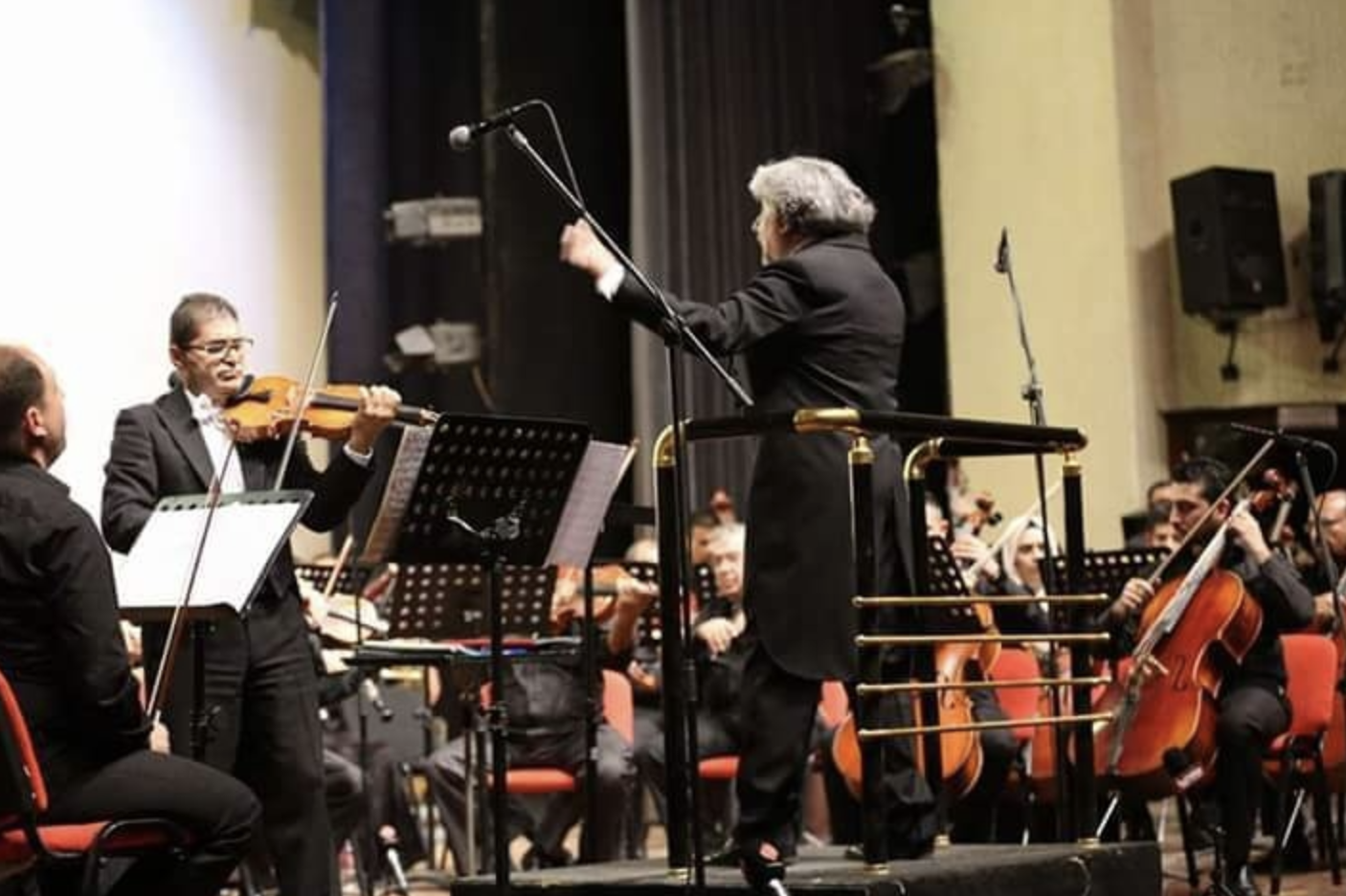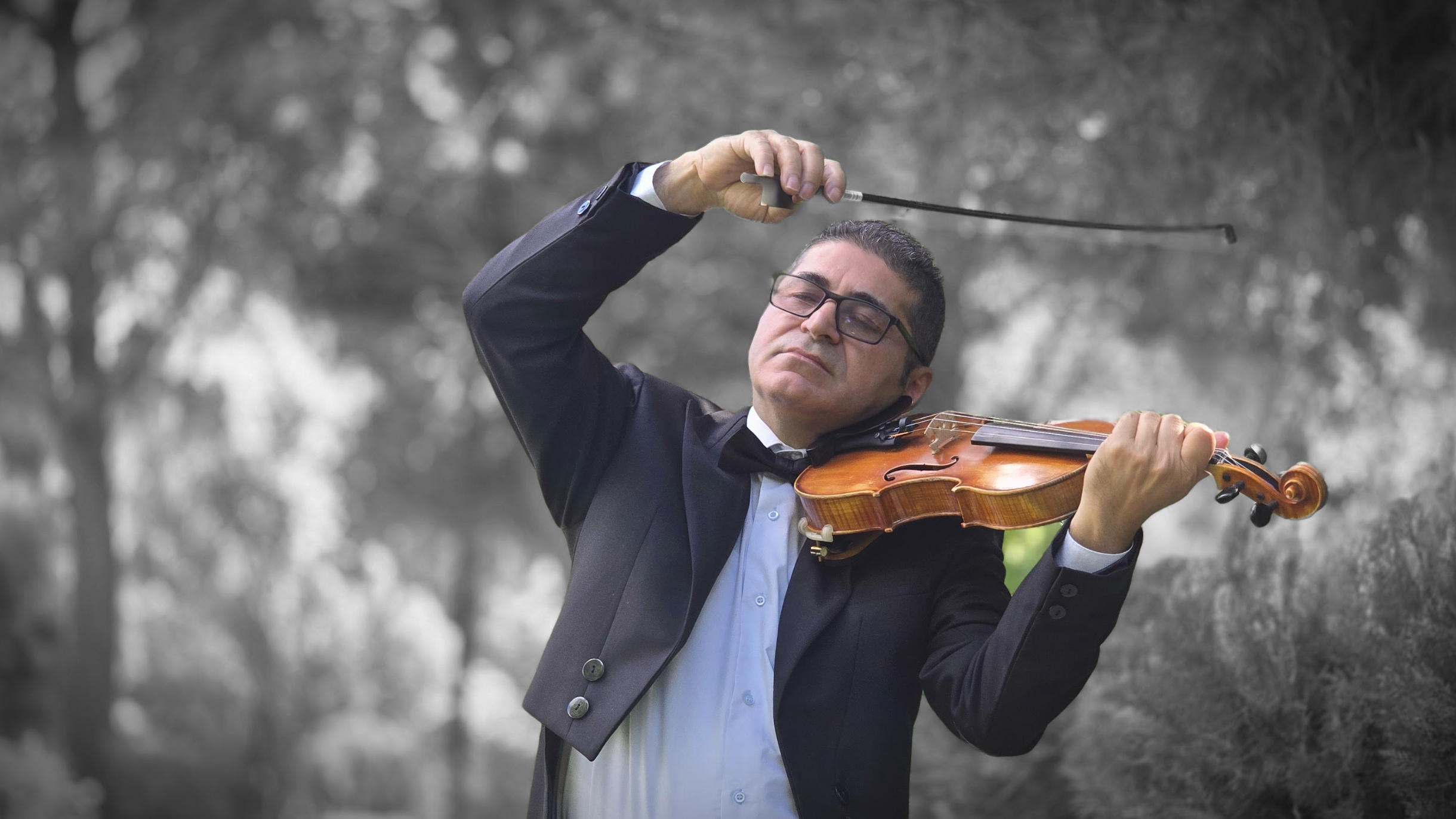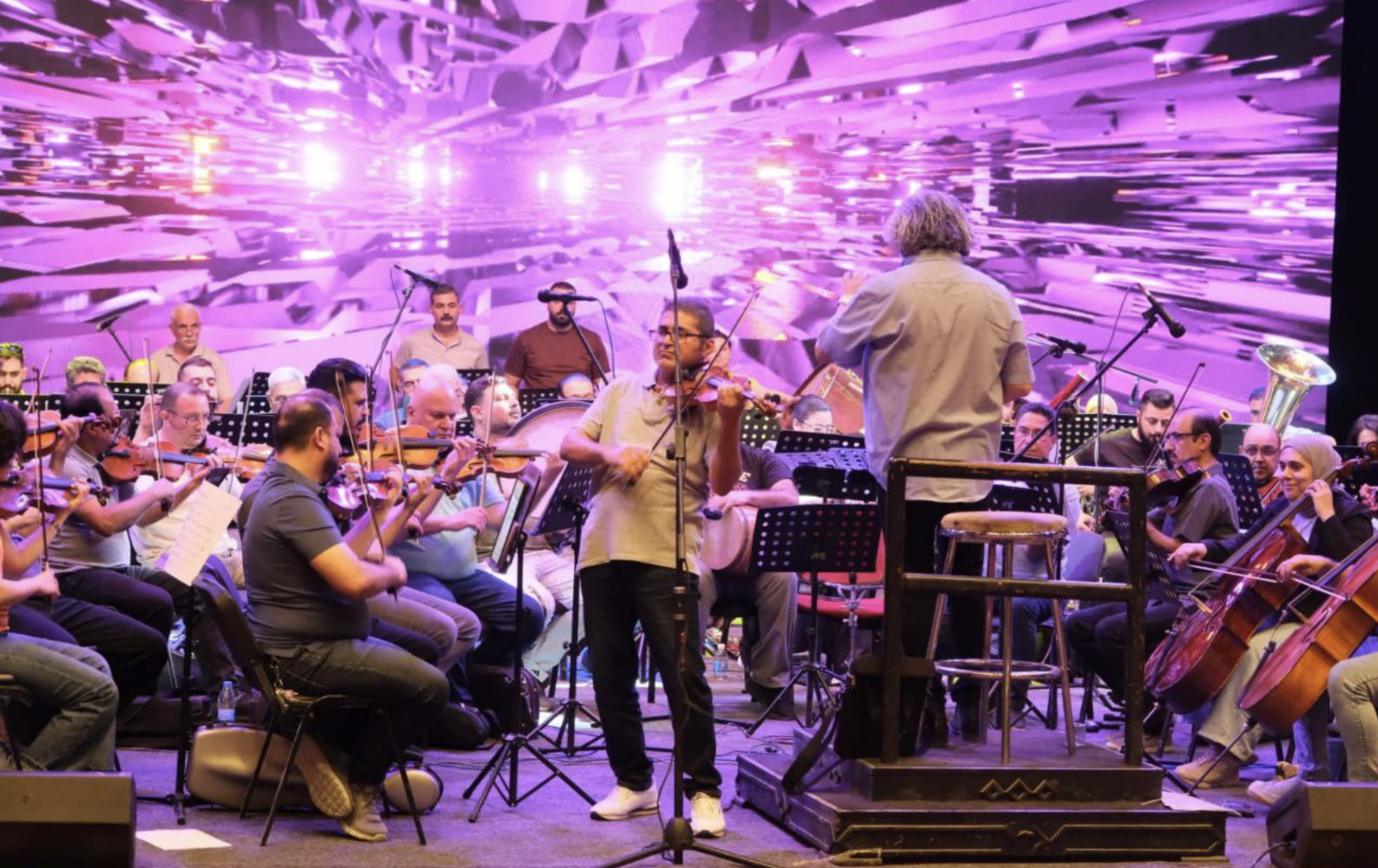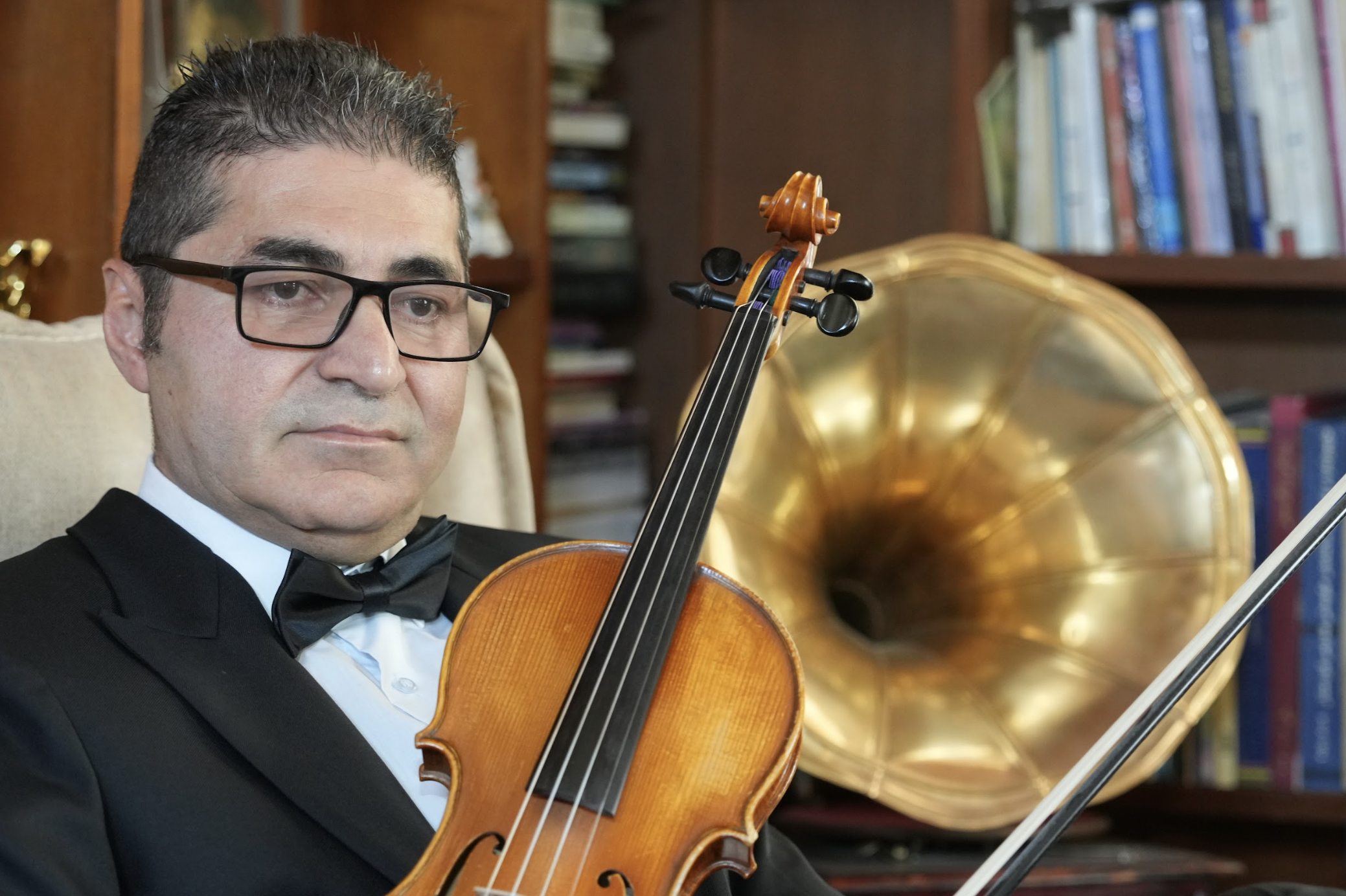In a modest home in the suburbs of Sulaymaniyah, a young boy once dreamed of a secondhand violin, his head filled with visions of stages far beyond the mountains that surrounded him. That boy was Alan Arif. Decades later, he stands on the brink of a historic performance with the Brussels Philharmonic, becoming the first Kurdish soloist to appear with what is one of Europe’s most prestigious symphonies.
Alan’s journey is more than a musical success story; it is a story of cultural persistence, self-discovery, and a lifelong commitment to incorporating Kurdish culture with global heritage.

“I started playing music in 1977, when I was nine,” Alan recalls in a soft, reflective voice. “There was something about the sound of the violin – it felt like a voice that could speak without words.”
As he tells Kurdistan Chronicle, within a year, his talent and determination led him to become the leader of the local band Mandali Bekhud, an extraordinary achievement for someone of his age. The group, based in Sulaymaniyah, became a local sensation, known for their innovative blend of Kurdish melodies and modern rhythms.

Going out
By the early 1980s, Alan’s passion had outgrown the local scene. After completing primary and secondary education in his home city, he was admitted to the prestigious Baghdad Institute of Fine Arts. There, between 1983 and 1988, he submerged himself in the ocean of classical training, mastering music in both theory and practice, refining his technique and mastery in the craft he chose so wholeheartedly. He reflects on those golden days: “Baghdad gave me structure. But the melodies of my homeland remained in my heart.”
In 1996, driven by the need to evolve artistically and seek broader horizons, Alan made the life-altering decision to migrate to Europe. Moving to Germany was the beginning of a new chapter for him, he explains. “I wanted to explore how Kurdish music could speak to the world, not just the Kurds.”

Living in Europe was not altogether easy; the “cultural continent” presented both challenges and opportunities. Alan had to adapt to a new language, culture, and artistic landscape. Yet between all those changes, one constant remained: his violin. Over the years, he has performed as both a soloist and ensemble member across the continent, steadily building a reputation not only for technical brilliance, but for a unique musical voice that merged the Kurdish spirit with European aesthetics – a match made in heaven that created an international harmony.
“Whenever I compose or perform, I try to embed the Kurdish soul in the notes,” Alan explains. “I don’t just want people to hear a piece of music. I want them to feel the mountains, the struggle, the love, and the beauty of Kurdistan.”

On May 16, 2025, he takes the stage as a soloist with the Brussels Philharmonic, a landmark moment in Kurdish music history on a main European stage. The orchestra, widely regarded as one of Europe’s finest, will perform a Kurdish masterpiece in orchestral form. Then, on September 20, the piece will be presented again, cementing its place in the global classical catalog.
Alan sees this not as a personal triumph, but rather a collective one. “This is for every Kurdish child who dreams with an instrument in their hand. It’s for those who had to leave their homes, but never left their culture behind.”

Staying tuned to home
Today, Alan is based in Germany but maintains strong ties with the Kurdish artistic community. He collaborates frequently with Kurdish musicians, mentors young artists, and is an active member of Novum Brussels (formerly Theatre Saint-Michel), a venue known for hosting avant-garde and multicultural performances in the heart of Europe. Alan’s work aims to explore the intersection of diaspora identity, memory, and sound.
Those who listen to Alan’s compositions describe them as cinematic, emotional, and deeply rooted in Kurdish folklore. His music carries the melancholy of exile, the resilience of a people, the continuation of the struggle, and the boundless curiosity of an artist determined to cross borders and link worlds.

When asked what keeps him motivated after so many years, Alan smiles “Music is like breathing,” he says. “But for me, it’s also a way to keep my homeland alive in every note I play.”
When the world tunes in to hear Alan’s violin soar above the orchestra this May, it will be more than just a concert. It will be a moment where music becomes a voice for a nation, carried by the hands of a man who never gave up on his dream. Through every note, you will hear the determination of a dreamer who – despite the hardships of a war-torn country, the pain of marginalization, and the weight of being part of a targeted Kurdish minority – kept playing. Alan’s music is not just about him; it is a powerful reminder that art has the ability to defy all odds and keep the spirit alive.
Mohammad Dargalayi is a journalist and photographer with 14 years of experience. He is a member of IFJ Global.

